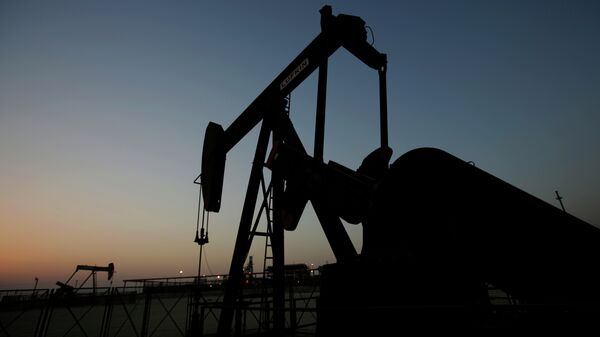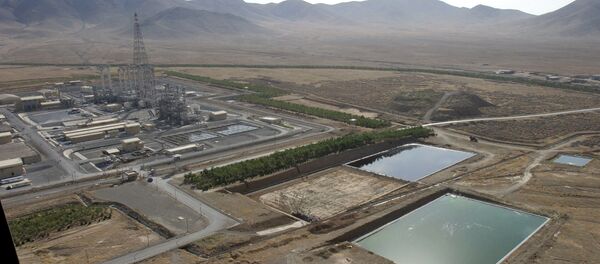WASHINGTON (Sputnik) – Members of the Organization of the Petroleum Exporting Countries (OPEC) will convene in Vienna on Thursday to discuss a plan to freeze oil production, two months after the previous attempt failed due to Saudi Arabia’s reversal.
"Saudi Arabia has a long history of using its enormous market share for political purposes," US foreign affairs expert and author Dan Lazare said. "Still, I don't see how Saudi Arabia can prevail in the long run."
Iran has far greater size, resiliency and superior human resources to Saudi Arabia, Lazare explained.
"Iran's economy is highly diversified, while its population is not only many times larger, but better educated and harder working. For all its problems, it's not nearly as politically dysfunctional, not by a mile. So the Saudis will eventually lose this tug of war," he said.
Lazare said he believed the Saudis credited themselves with undermining the Soviet economy in the 1980s by driving down global oil prices then and believed they could pull off the same strategy against Iran.
However, he noted, oil prices were now trending steadily up again, which would mean economic relief for Iran and other oil-exporting nations as well, despite greatly increased Saudi production.
Northern Ohio University Assistant History Professor Robert Waters agreed that in the face of the escalating race between the Saudis and Iran to maximize their share of global export markets, OPEC’s meeting was likely to prove futile in getting them to reduce their production.
"Oil production is tremendously high — at or near peak for most countries — so even if OPEC and a few others did freeze production, it would be a PR stunt without changing much," he said.
US efforts to keep up production by the use of controversial fracking technology would also add to record global oil output, Waters predicted.
The Iranians were highly unlikely to allow themselves to be persuaded or browbeaten by the Saudis into agreeing to any production cuts that might adversely affect their oil revenues, Waters concluded.
The persistent low oil prices and market instability led to an April meeting of OPEC and non-OPEC oil producers in Doha to discuss a possible freeze of oil output. The meeting failed to produce an agreement as OPEC members were sharply divided over capping their own production.



